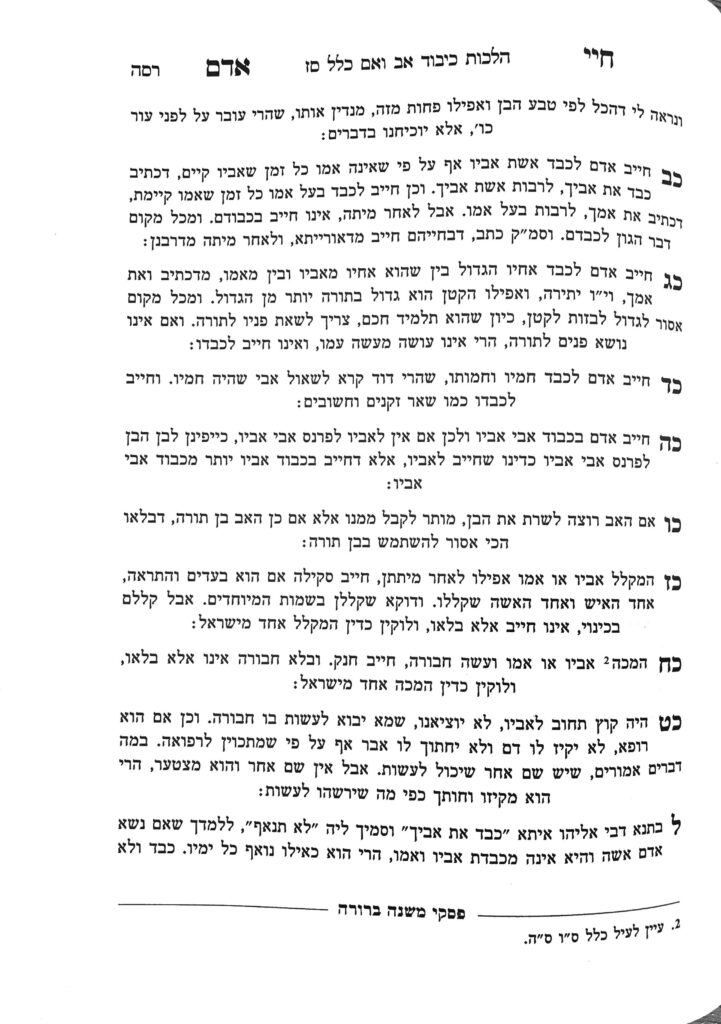We are beginning siman 23, where the Chayei Adam continues to discuss other individuals who are included as adjuncts in the mitzvah of kibud av v’eim.
The Chayei Adam writes that a person is chayav to be mechabed their older brother, whether an older brother from their mother or their father. We learn this halacha from the extra word es, in the pasuk kabeid es avicha v’es imecha.
Sometimes, a younger brother can be a more accomplished talmid chochom than an older one. Nevertheless, the younger sibling is still chayav to give kavod to their older sibling. At the same time, the older brother has a chiyuv to be mechabed the younger brother due to his Torah accomplishments. If the older brother does not want to be mechabed the younger brother who is a talmid chochom, the older brother is considered eino oseh maaseh amcha, one who does not follow the dictates of Torah. We have learned that, in certain situations, if a parent does not follow the Torah, there is no chiyuv kavod towards them (see shiur 1351 regarding the definition). The same will be true regarding a sibling. Obviously, there are shades of gray when applying this halacha, as we learned regarding parents.
In siman 24, the Chayei Adam writes that one is chayav to be mechabed their mother-in-law and father-in-law. The pesukim teach us that Dovid Hamelech referred to his father-in-law as avi, so we see that one has a chiyuv to be mechabed their father-in-law as their own father. Practically, the Chayei Adam writes that one should be mechebed them in the same way they would be mechabed an elderly or chashuv person, even if the in-laws are not elderly. This level of kavod is a level below the kavod due to one’s parents, because at the end of the day, one’s in-laws are not one’s parents. However, other poskim disagree and understand that one should be mechabed their in-laws to the same level as they would be mechabed their parents.
Regarding a woman being mechabed her in-laws, the poskim understand that in the same way the husband “joins” his wife in being chayav to be mechabed her parents, the wife joins the husband’s chiyuv as well.
An example of this halacha is as follows. In the same way one cannot call their parents by their first names, one cannot call their in-laws by their first names. However, other poskim disagree that this is not a good example and understand that while it is not appropriate to call in-laws by their first names, it is not assur.
Summary
- One is chayav to be mechabed their older brother.
- If a younger brother is a greater talmid chochom, the older brother is chayav to be mechabed him as well, but it does not take away from the younger brother’s chiyuv towards his older brother.
- One is chayav to be mechabed their in-laws.



